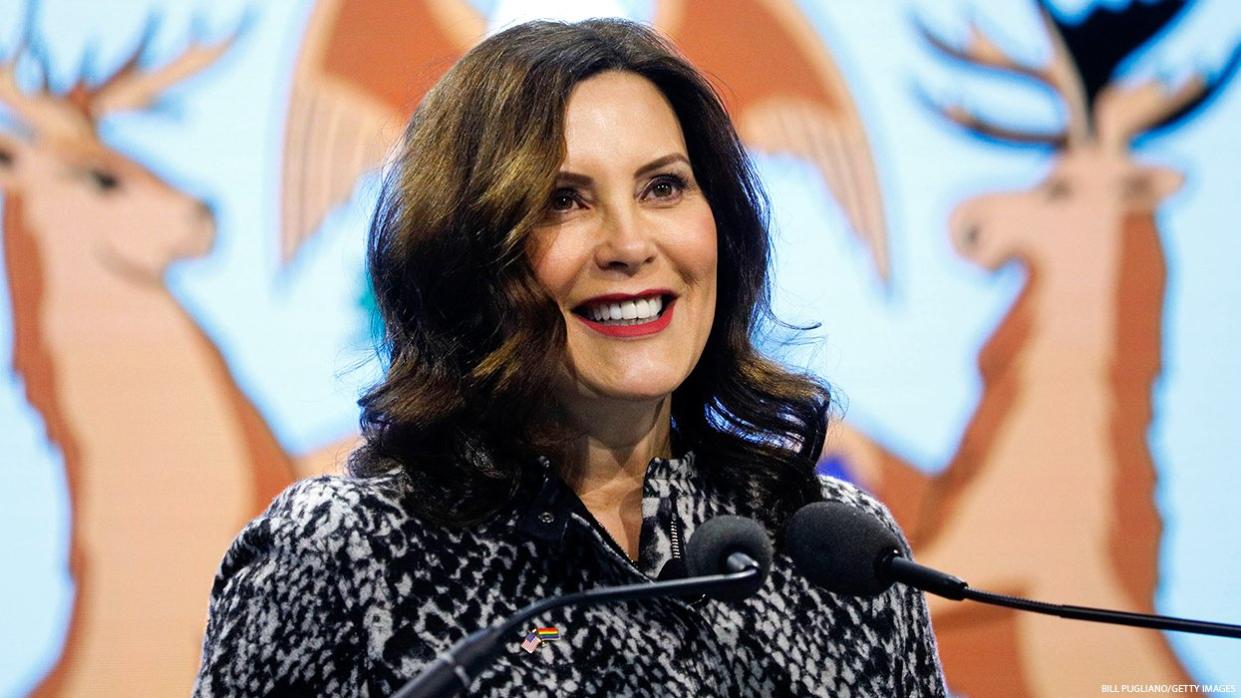Michigan Lawmakers OK LGBTQ+ Rights Bill; Gov. Gretchen Whitmer to Sign

- Oops!Something went wrong.Please try again later.
Michigan has finally said yes to banning anti-LGBTQ+ discrimination, and it will be the 22nd state to do so through legislation.
The Michigan House of Representatives Wednesday approved a bill expanding the state’s Elliott-Larsen Civil Rights Act to prohibit discrimination based on sexual orientation and gender identity or expression, Bridge Michigan reports. The act, first adopted in 1976, already banned discrimination based on race, religion, sex, and a variety of other factors.
The Michigan Senate had passed the bill last week, but it needs to take one more action, after which it the measure will go to Gov. Gretchen Whitmer, a Democrat, who was promised to sign it into law. “This is about doing the right thing, and it is just good economics,” Whitmer said in a statement, according to Bridge Michigan. “Bigotry is bad for business, and ensuring these protections will build on our reputation as a beacon of opportunity where anyone can succeed.”
The vote was 64-45, with eight Republicans joining Democrats. The new protections will apply to employment, housing, and public accommodations.
Court decisions and interpretations of the Elliott-Larsen Act have held that sexual orientation and gender identity/expression are already covered, but LGBTQ+ advocates and allies said it’s important to write that into the law to keep rights from being rescinded by courts going forward. Legislators have been trying to amend the act for years, and they succeeded now that both the House and Senate have Democratic majorities.
Amending the law “is the most direct way we can ensure all Michiganders know what protections they have,” said Democratic Rep. Laurie Pohtusky, as reported by Bridge Michigan. It will shield their rights from “fickle political winds,” added Pohtusky, Michigan’s first out queer female legislator.
Some Republicans had sought to add religious exemptions to the bill, but those attempts failed. Democrats pointed out that the Elliott-Larsen Act already bans discrimination based on religion.
“No one is asking for a fundamental shift in religious tolerance,” Pohutsky said. “All we’re asking is for the ability to live and work in our state with the same humanity and protections as every other Michigander.”
The audience in the House gallery applauded after the bill passed. Attorney General Dana Nessel, Michigan’s first out gay statewide official, was present on the House floor, as was Sen. Jeremy Moss, the gay legislator who sponsored the bill in the Senate.
LGBTQ+ groups offered praise. “LGBTQ people — like all people — deserve to be treated with dignity and respect and to live life free from discrimination. By codifying nondiscrimination protections into state law, Michigan brings us one step closer to creating a society where LGBTQ young people never have to fear being turned away from a business or told they cannot participate in an activity or enter a public space just because of who they are or who they love,” Gwen Stembridge, advocacy campaign manager for the Trevor Project, said in a press release. “We thank and honor the years of hard work of our fellow advocates, community leaders, and partners like Equality Michigan, who led the way to where we are today. Amid the ongoing legislative attacks on LGBTQ communities, especially trans youth, this proactive law is a beacon of hope and optimism.”
“Today is a big step for equality and sends a powerful message to LGBTQ+ Michiganders that discrimination has no home in our state,” added Erin Knott, executive director of Equality Michigan. “Michigan now joins alongside 21 other states who have sent this same message to their own LGBTQ communities and codified these protections into law. Today’s victory would not have been possible without years of hard work from generations of courageous leaders. We are witnessing a sea change toward equality, bringing us closer to a future where everyone is treated equally under the law, no matter our gender, the color of our skin, how we worship, or who we love.”

